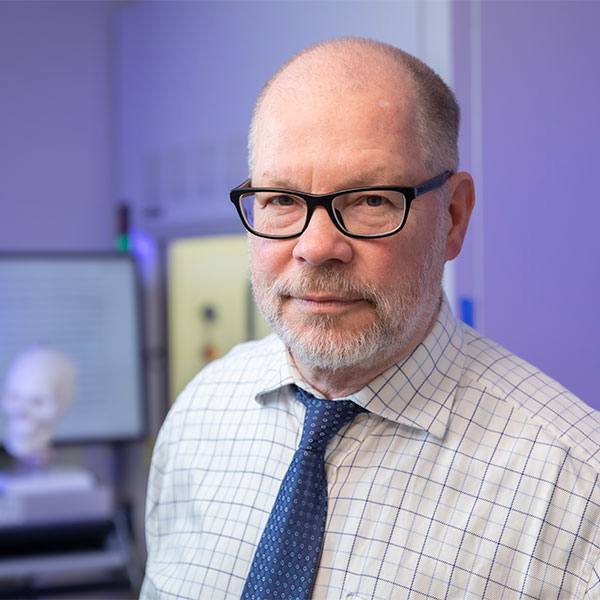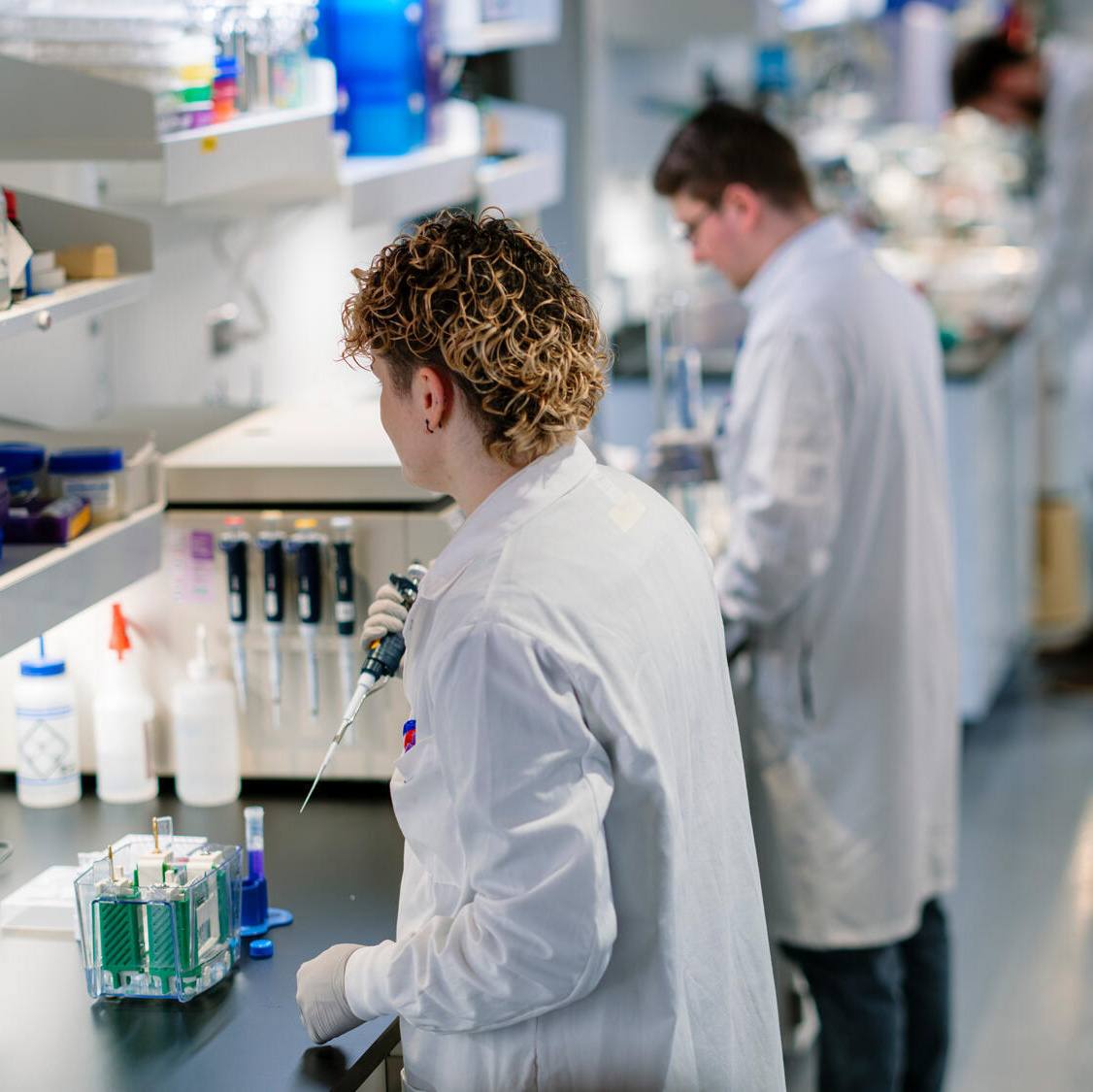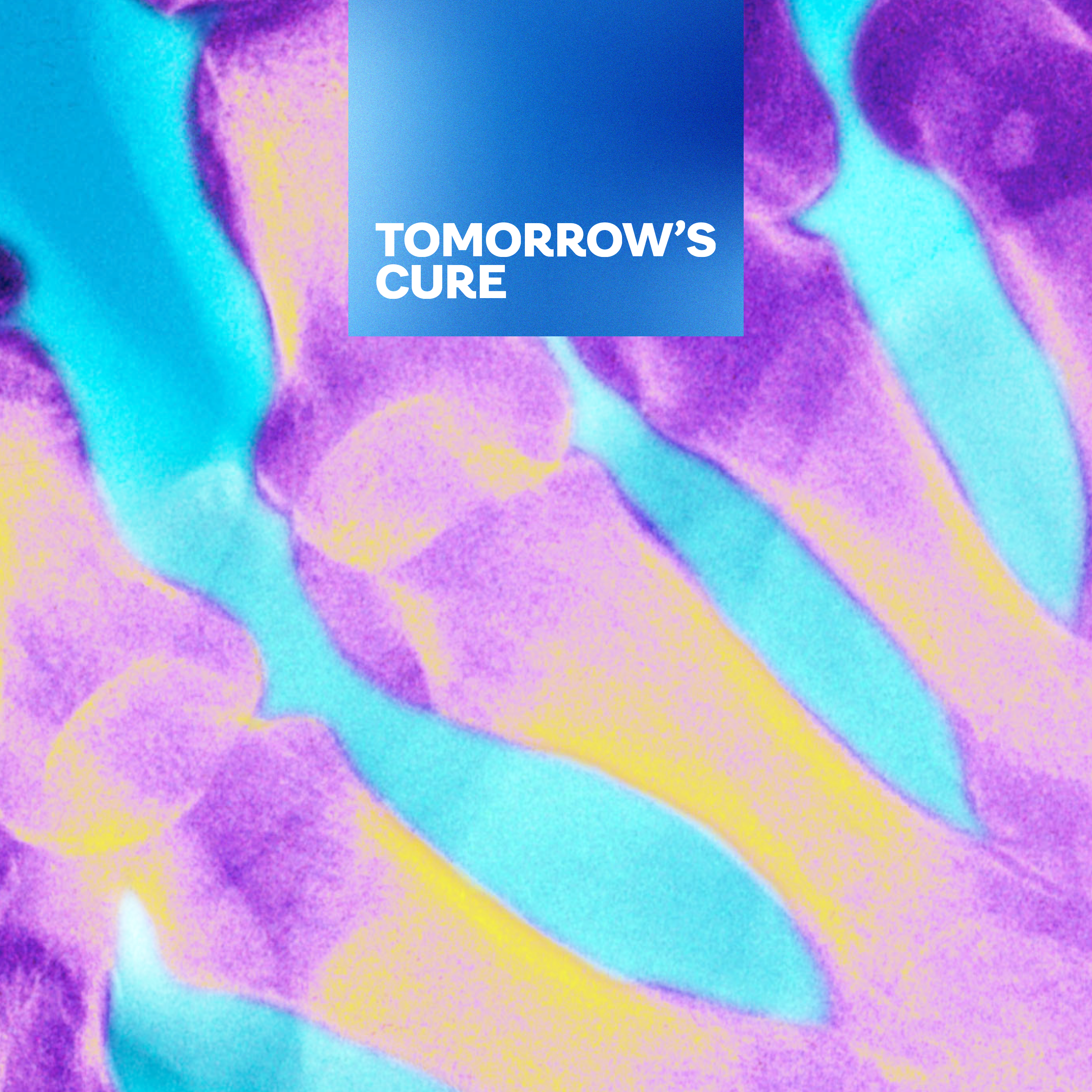-
Research
Science Saturday: A big step forward, bringing DNA sequencing data to routine patient care

In 2020, the Mayo Clinic Center for Individualized Medicine set out to create a library of genomic sequencing data of 100,000 consented Mayo Clinic participants by the end of 2024 to advance research and improve patient care. The genomic sequencing study is a year ahead of the plan — reaching over 71,000 participants.
"This is one of the largest population health studies of its kind," says Konstantinos Lazaridis, M.D., the Carlson and Nelson Endowed Executive Director for Mayo Clinic's Center for Individualized Medicine and principal investigator of the Tapestry study. "We are advancing the idea of bringing genomic sequencing to routine patient care."
Dr. Lazaridis notes that creating a DNA library can help physicians reveal predispositions to health problems and enable earlier use of preventive measures throughout a person's life span.
Mayo collaborated with Helix, a population genomics company, to do the sequencing. Their comprehensive DNA test uses Next Generation Sequencing technology to screen the exome for genetic variants that can significantly increase the risk for disease. It reads all 20,000 genes that code for proteins, plus hundreds of thousands of regions outside the protein-coding regions known to be informative and have the most effect on a person's health.
For the initial part of the study, participants receive screening results for three highly actionable hereditary conditions that often go unrecognized. They include familial hypercholesterolemia (FH), hereditary breast and ovarian cancer (BRCA1 and BRCA2), and Lynch syndrome, a form of hereditary colorectal cancer.
Participants' results are returned over time to them and their Mayo Clinic provider, becoming a part of their electronic health record. Dr. Lazaridis notes that access to these results allows Mayo researchers to evaluate the benefits of sequencing and the short- and long-term effect on health-related outcomes, utilization and physician acceptance.
"Several people affected by these conditions are unaware they are at risk, but genetic screening can lead to diagnoses for these people and their families," explains Dr. Lazaridis.
Patients' results expand knowledge, improve care
Alejandro Mirazo, 56, participated in the study to contribute to medical research and to add diversity to Mayo Clinic's genomic dataset as a Mexican American. He never imagined his genetic test results would reveal a hereditary link to cancer or that his findings would potentially save his life.
Schyler Martin, a member of the Munsee Band of Mohicans in Minnesota, also participated in the study to contribute to Mayo Clinic's efforts to diversify its genomic data. His genetic test results revealed his distinctive DNA lineage to an ancient group of Native Americans known as the Beringians. Martin hopes some of his fellow tribe members will participate in the study to expand knowledge of potential health-related genetic traits shared among his tribe.
Equally important, the Center for Individualized Medicine has approved more than 50 research projects of Mayo Clinic investigators to use stored genomic and phenotypic data from the study participants for research analysis. Strict policies and procedures are in place to protect data privacy and use. Several novel findings and discoveries have already been made within these research projects, which collectively incorporated the exome sequencing and clinical data of more than 324,000 study participants in a wide range of diseases.
More information
Clinicians and researchers: Visit Genomic Sequencing: Tapestry Study. Interested in using Tapestry data for a research study? Email Omics@mayo.edu.
Referring physicians and Mayo Clinic patients: Visit Genomic Sequencing: Tapestry Study for eligibility. Email the Tapestry study team for more information at Tapestry@mayo.edu.
Learn more
Read more stories about advances in individualized medicine.
Register to get weekly updates from the Mayo Clinic Center for Individualized Medicine blog.
Join the conversation
For more information, visit Mayo Clinic Center for Individualized Medicine, or Twitter at @MayoClinicCIM.









